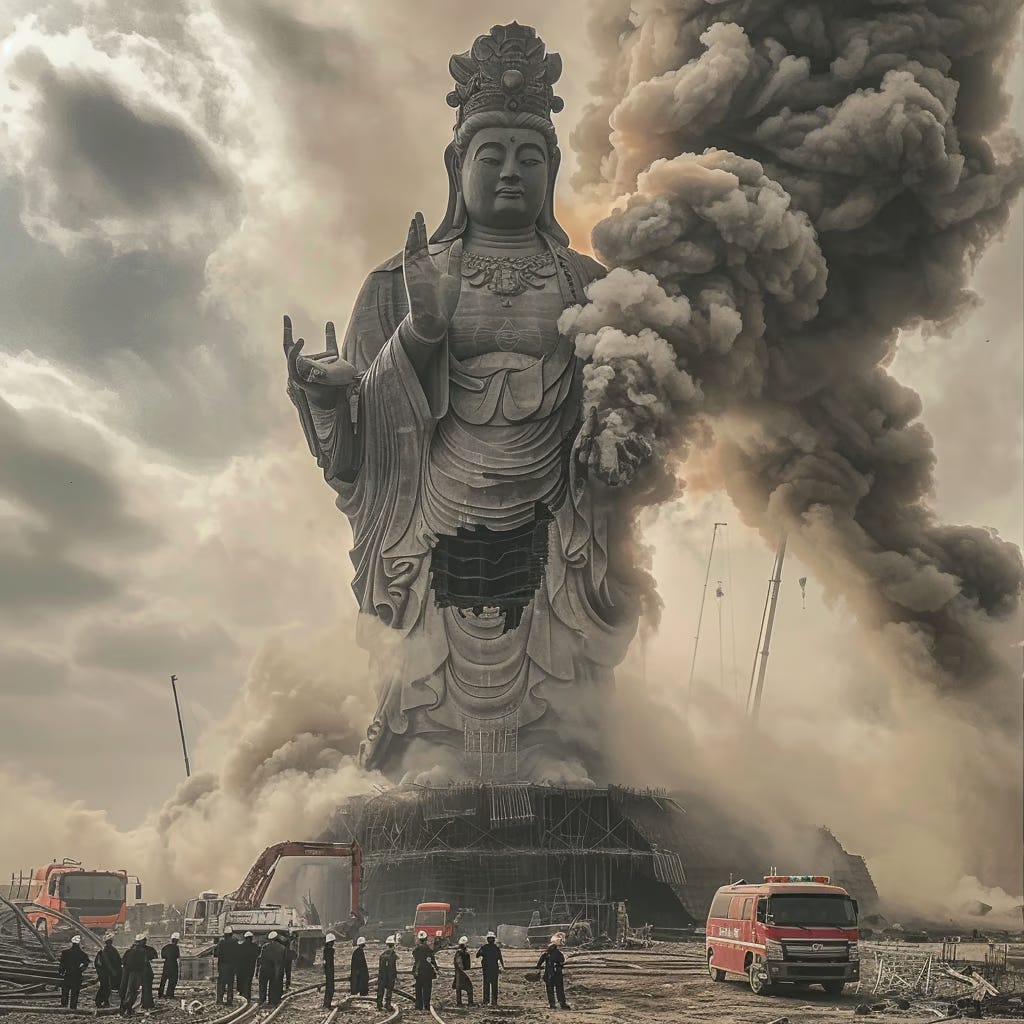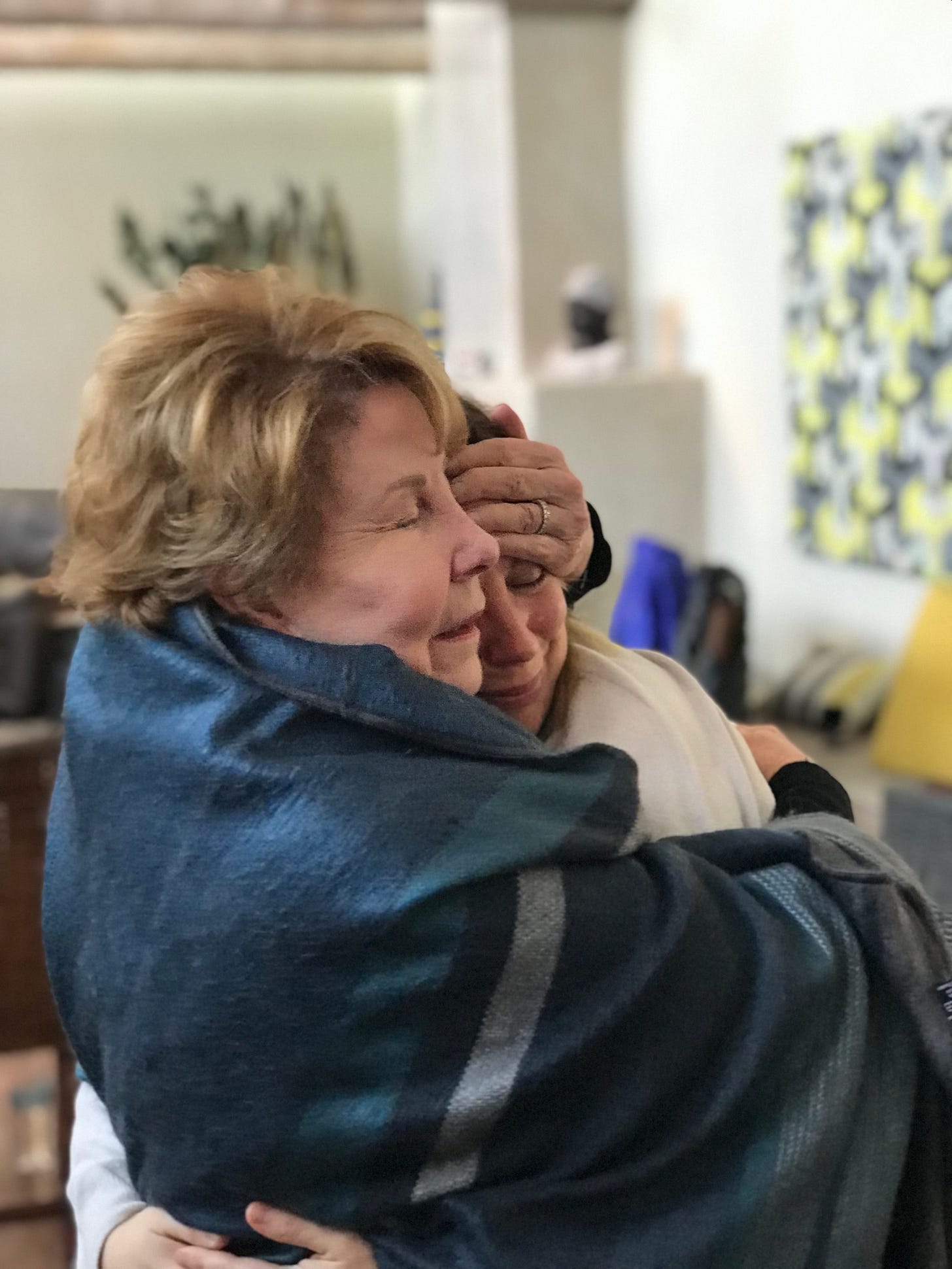A creative adaptation of a talk at Appamada by Flint Sparks. January 28, 2025.
Every religion and most contemporary cultures instruct us in qualities like gratitude and kindness, equality and justice, humility and mercy. These are keys to happiness, we’re told, foundations of a civil society. Embracing this view as self-evident, many of us have also embraced certain assumptions—the assumption that being wise and compassionate is more appealing than being petty and cruel, for example, or the assumption that when we see behaviors that are mean, violent, or harming, we will instinctively aim to change course. Now we know, painful as it is, that assumptions like these are not only naïve, but dangerous. Apparently, viciousness and narcissism, deceit and corruption can be celebrated in public and many people aren’t uncomfortable with it—they even seem to want it. Apparently, lying, stealing, hurting, intoxication, and abuses of sexual energy and power are not only acceptable; they’re worthy of applause. We now face a reality inclusive of a bigger truth—that even in a “civil” society, people can worship leaders who are blatantly amoral and who deem the welfare of all beings to be irrelevant.

We are seeing a different kind of homecoming—a scurry into refuges magnetic and convenient in uncertain times but predictably revealed to be false: coercive power, predatory manipulation, exploitative tribalism, dark cynicism. The depths of this antisocial behavior many of us did not anticipate, and now we see it comes with a plan: to burn down all that is good. In the face of these realities, our own hearts can go dark, and we can get caught in what I call “terror-rage”—an embodied response to vulnerability in which terror approximates anticipatory grief, and rage approximates helplessness.
As a Zen teacher and psychologist, what can I say in response to the overwhelming longing for guidance and direction? What can I say to be encouraging, inspiring or helpful? Kwan Yin—a figure of compassion known around the world—it is said that even her head exploded in a moment of discouragement. Anyone can slide toward despair in the presence of all that’s occurring. If we aim for a wholehearted response to suffering, what do we do? What can we do? What is there to do?
I don’t have firm answers to the immense suffering we see. A wisdom practice does not offer solutions; it offers opportunities to mature ourselves so our efforts to minimize harm and build life-affirming futures are more effective. In my role, I carry what I always carry: confidence in that practice to shape us in ways that allow for creative solutions over time—to become the kinds of people who can respond with skillful means and right action as we endeavor to meet the unknown and unknowable. There is reason to believe in our basic goodness, reason to imagine and hope. As we’re confronted with the shadows of our collective psyche, still, our hands are not tied. There are emotional and psychological qualities we can cultivate, contemplative practices we can take up.
Americans are being led by people immune to causing harm. In cultures of this nature, embodying a life of compassion can inspire derision and criticism, become a slur for being weak and stupid. Leaders committed to dividing and conquering have always aimed to pathologize acts of loving-kindness, to make people feel foolish for choosing them. This is a lethal delusion, worthy of Manjushri’s sword. Make no mistake: Love is a harbor that cannot be destroyed; callousness and cruelty point to shakiness and fear; acts of kindness are born of a strong heart; compassion takes courage and grit. We may be criticized by misguided people as we endeavor to love, but we can risk rejection—even scorn—to be kind to one another, to take care of each other no matter what.

Compassion is often soft, radiating energy, but it has a wrathful form that quickly becomes a powerful force. Fierce compassion is an ardent version of compassion that is swift, no-nonsense, and defiant as it takes action to protect that which is vulnerable and sacred. When we embody this guardian energy, it gives us fuel, a motivating intensity to move without hesitation. Fears that would normally hold us back disappear; we go where we need to go and do what we need to do. In this state, we’re inured to the fear of pain, and when we don’t fear pain, nothing can stop us. In the presence of compassion that has turned to ferocity, tides can suddenly turn. Chaos and disorder quickly straighten up, and outcomes that seemed inevitable are abruptly dismantled. To cultivate fierce compassion, we practice embracing discomfort and remembering what we stand for, so if the time comes for courage—moral and physical—our capacity to gather it comes quickly.
To bear witness is to want to listen—to purposefully come alongside suffering—dropping assumptions, observing patiently, and sensing into what would serve. In the swamp of our competing and messy wants, we still have the power to bear witness—to the joy, the mystery, the cries of the world, inviting enough stillness to honor what’s below the surface. From this more selfless awareness, we alleviate pain through sheer presence, softening into strength without averting our eyes or driving a personal agenda for change. This healing balm can be offered anytime; there is plenty of suffering to come alongside.
The Sanskrit word smirti, which we know in Pali as sati, points to mindfulness. It means literally, "that which is remembered.” Manjushri, a figure of transcendent wisdom, carries a sword—not to hurt or kill—but to cut through delusion, our own and that which we see in the world. Part of our work is to become curious and occupy a space of not-knowing, a state of openness that questions fixed ideas and avoids swerving wholly into our projections of what is happening and our visions of what may come. In not-knowing, we practice remembering our clear mind, seeing through delusion, and approaching challenges with an orientation of inquiry. We ask ourselves questions like:
What is the nature of this phenomenon I’m seeing?
What is my unwholesome reactivity to the unwholesome behavior I see?
If I take this action, what might the outcome bring?
As I make this effort, am I fixing, helping, or serving?
What kind of energy am I bringing to this situation?
It is too easy to act out of snap conclusions about people, situations, and environments. If we stay curious and proceed mindfully, we can hold our stories lightly and manage our energy skillfully, becoming adaptive, creative, and agile in response to needs instead of righteous, rigid, or combative.
Our world is filled with too much violence and hatred to waste any of it. Ready or not, like it or not, we are being stirred—to intimately know the textures of painful emotion, to make peace with grim aspects of the world, and to use terror and rage as fuel—not to burn things down—but to love them wholeheartedly and forge them anew. If we embrace the opportunities this world presents, we will find deeper wells of capacity. We will know the salt of our souls. Whatever happens, no one—no self-serving tyrant, no black-hearted brute, no violent collective—can negate our vow to care for each other, or diminish the combined forces of compassion and wisdom. We can meet this occasion with soft fronts and strong backs. We can do this crucial work together.
To the good in us,
Flint (and Sun)












Thanks! Certainly a timely piece of guidance. We, the citizens of the world, are entering interesting times - not something 'new' just not experienced in decades. We're being challenged to respond, directly or overtly. Fierce compassion should be the preferred response - but I suspect we need practice.
Soft front, strong back really hit home—compassion isn’t just kindness, it’s strength. And Manjushri’s sword cutting through delusion instead of destroying? That stuck with me. The way you framed fierce compassion as a force that protects what’s sacred feels especially urgent now. With so many systems built on coercion and scarcity falling apart, just bearing witness isn’t enough—we have to build something better. But how do we make compassion, both gentle and fierce, not just an ideal but the actual foundation of what comes next?
Really grateful for this piece—timely and resonant. Maybe we’ll cross paths in the School of the Possible? Would love to keep the conversation going!